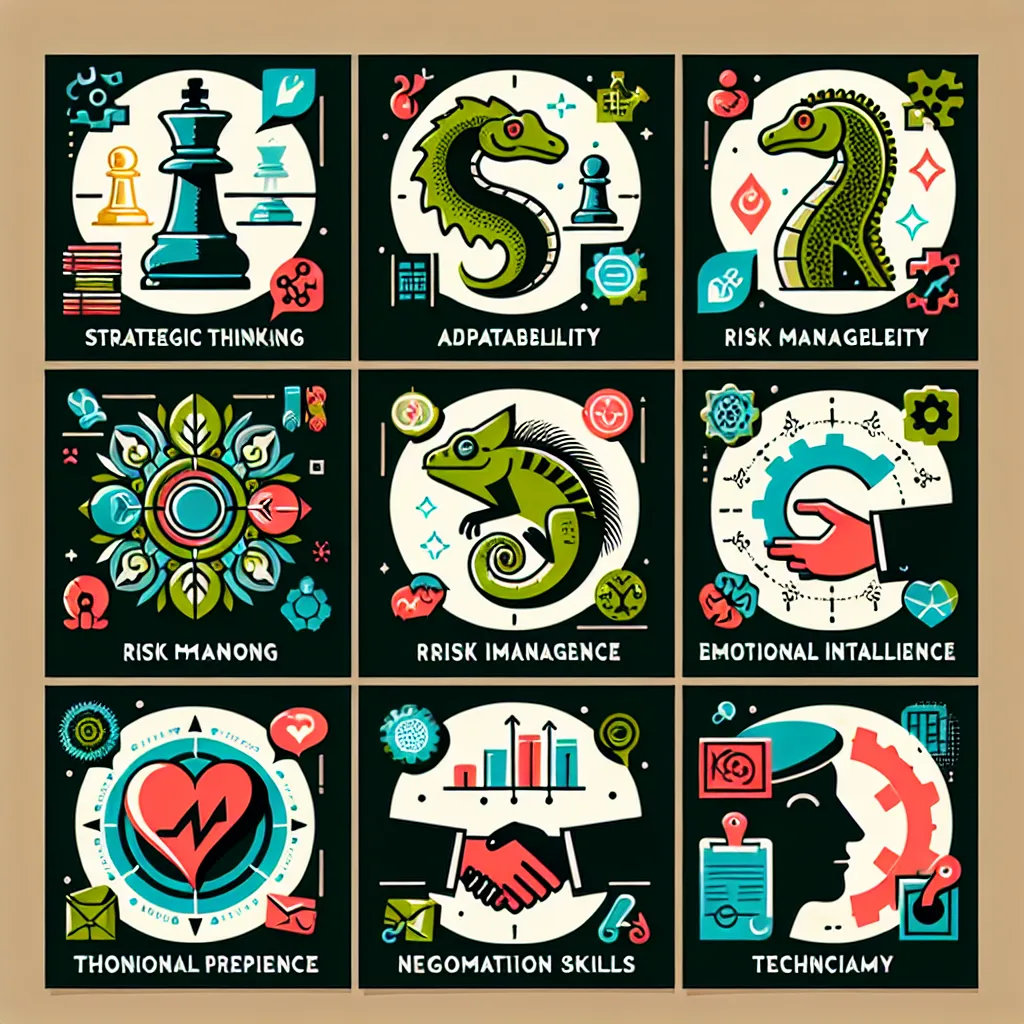The IELTS Speaking test often includes questions about influential people in our lives, particularly those who have shaped our career paths. This topic allows candidates to showcase their language skills while reflecting on personal experiences. Let’s explore how to effectively answer questions related to “Describe a person who has influenced your career choice” and maximize your speaking score.
Nội dung bài viết
- Part 1: Introduction and Interview
- Question: Do you think it’s important to have role models in your career?
- Part 2: Long Turn (Cue Card)
- Sample Answer (Band 8-9):
- Follow-up Questions:
- Part 3: Two-way Discussion
- Question: How do you think the role of mentors in career development has changed in recent years?
- Question: Do you think people’s career choices are more influenced by their parents or by media representations of different professions?
- Key Vocabulary and Phrases for High Scores
- Examiner’s Advice
 Career influence and mentorship
Career influence and mentorship
Part 1: Introduction and Interview
In Part 1, the examiner may ask general questions about your career choices or influential people. Here are some potential questions and sample answers:
Question: Do you think it’s important to have role models in your career?
Band 6-7 Answer:
Yes, I believe having role models is quite important in one’s career. They can provide guidance and inspiration, which can be really helpful, especially when you’re just starting out.
Band 8-9 Answer:
Absolutely. Role models play a crucial role in shaping one’s career trajectory. They serve as a source of inspiration and provide valuable insights into the realities of a particular profession. Moreover, observing successful individuals in your field can help you set realistic goals and develop strategies to overcome potential obstacles.
Part 2: Long Turn (Cue Card)
Now, let’s look at a potential cue card for this topic:
Describe a person who has influenced your career choice.
You should say:
- Who this person is
- How you know this person
- What this person’s career is
- And explain how this person influenced your career choice
Sample Answer (Band 8-9):
I’d like to talk about my high school biology teacher, Dr. Sarah Thompson, who has had a profound impact on my career choice. I first met Dr. Thompson when I was 15 years old, during my sophomore year of high school.
Dr. Thompson is a dedicated educator with a Ph.D. in Marine Biology. Her career combines teaching and research, as she spends her summers conducting fieldwork in various coastal ecosystems.
What sets Dr. Thompson apart is her infectious enthusiasm for science. Her lessons were never just about memorizing facts; instead, she challenged us to think critically and apply scientific concepts to real-world problems. I vividly remember a project where we analyzed the impact of plastic pollution on local marine life. This hands-on experience ignited my passion for environmental conservation.
Dr. Thompson’s influence extended beyond the classroom. She actively encouraged me to participate in science fairs and even helped me secure an internship at a local marine research center. These experiences were instrumental in shaping my decision to pursue a career in environmental science.
Moreover, Dr. Thompson served as a powerful role model, especially for young women interested in STEM fields. She shattered stereotypes and demonstrated that it’s possible to have a successful career in science while maintaining a healthy work-life balance.
In conclusion, Dr. Thompson’s guidance and mentorship were pivotal in my career choice. Her passion for science, commitment to education, and encouragement of young scientists inspired me to follow in her footsteps and contribute to the field of environmental conservation.
Follow-up Questions:
- Has this person’s influence on your career choice changed over time?
- Are there any aspects of this person’s career that you wouldn’t want to emulate?
Band 8-9 Answer for Question 1:
Dr. Thompson’s influence on my career choice has indeed evolved over time. Initially, her impact was primarily about sparking my interest in environmental science. However, as I’ve progressed in my studies and early career, I’ve come to appreciate the nuances of her influence. For instance, I’ve adopted her approach of integrating research with practical application, which has become a cornerstone of my work. Additionally, her example of maintaining work-life balance in a demanding field has become increasingly relevant as I navigate my own career path.
Band 8-9 Answer for Question 2:
While I deeply respect Dr. Thompson, there are aspects of her career that I might approach differently. For example, her focus on marine biology, while fascinating, is quite specialized. I prefer a more interdisciplinary approach, combining elements of environmental science, policy, and technology. Additionally, while Dr. Thompson’s dedication to fieldwork is admirable, I’m more inclined to balance field research with data analysis and modeling, leveraging technology to enhance environmental conservation efforts.
Part 3: Two-way Discussion
In Part 3, the examiner will ask more abstract questions related to the topic. Here are some potential questions and sample answers:
Question: How do you think the role of mentors in career development has changed in recent years?
Band 6-7 Answer:
I think mentors are still important, but the way people find mentors has changed. With social media and the internet, it’s easier to connect with professionals in different fields. Also, many companies now have formal mentoring programs, which wasn’t as common before.
Band 8-9 Answer:
The role of mentors in career development has undergone a significant transformation in recent years, primarily due to technological advancements and shifting workplace dynamics. Traditionally, mentorship was often limited to face-to-face interactions within one’s immediate professional circle. However, the digital age has dramatically expanded the scope and accessibility of mentorship opportunities.
Platforms like LinkedIn and industry-specific online forums have facilitated connections between mentors and mentees across geographical boundaries, enabling more diverse and specialized mentorship relationships. This has led to the rise of virtual mentorship, which offers greater flexibility and the ability to tap into a global pool of expertise.
Moreover, there’s been a shift towards more fluid and multifaceted mentorship models. Instead of relying on a single, long-term mentor, many professionals now seek guidance from multiple mentors for different aspects of their careers. This approach allows for a more holistic and adaptable form of career development, better suited to the rapidly changing job market.
Another notable change is the increasing emphasis on reverse mentorship, where younger employees mentor older colleagues, particularly in areas like technology and emerging trends. This bidirectional flow of knowledge acknowledges that valuable insights can come from all levels of an organization, fostering a more inclusive and dynamic learning environment.
Question: Do you think people’s career choices are more influenced by their parents or by media representations of different professions?
Band 6-7 Answer:
I believe both parents and media play important roles in influencing career choices. Parents often have a strong influence because they’re close to their children and want the best for them. But media can also make certain careers look exciting or glamorous, which can be very appealing to young people.
Band 8-9 Answer:
The influence on career choices is a complex interplay of various factors, with both parental guidance and media representations playing significant roles. However, their impact can vary greatly depending on individual circumstances and societal contexts.
Parental influence often stems from deep-rooted cultural and familial values. Parents typically have a vested interest in their children’s future and may steer them towards careers perceived as stable, prestigious, or aligned with family traditions. This influence can be particularly strong in cultures that emphasize filial piety or where certain professions are highly esteemed.
On the other hand, media representations have gained considerable sway in recent years, especially among younger generations. The pervasive nature of modern media, including social media, films, and television, can create compelling narratives around certain professions. These portrayals often glamorize or idealize specific careers, potentially inspiring young people to pursue paths they might not have otherwise considered.
However, it’s crucial to note that media influence can be double-edged. While it can broaden horizons and expose individuals to diverse career options, it may also present unrealistic or skewed perspectives of certain professions.
Ultimately, I believe the balance between parental and media influence is shifting towards a more media-centric model, particularly in societies with high digital penetration. Young people today have unprecedented access to information about various careers, often forming aspirations based on a combination of parental advice, media representations, and their own online research.
The most effective career choices likely result from a balanced consideration of parental wisdom, media insights, and personal interests, coupled with realistic information about job markets and career trajectories.
Key Vocabulary and Phrases for High Scores
-
Profound impact /prəˈfaʊnd ɪmˈpækt/ (adj. + n.): A very significant or deep effect.
Example: My mentor’s guidance had a profound impact on my career decisions. -
Pivotal /ˈpɪvətl/ (adj.): Of crucial importance in relation to the development or success of something else.
Example: Meeting Dr. Thompson was a pivotal moment in my academic journey. -
To set someone apart (phrasal verb): To make someone or something different from or better than others.
Example: Her innovative teaching methods really set Dr. Thompson apart from other educators. -
Instrumental /ˌɪnstrəˈmentl/ (adj.): Important in making something happen.
Example: Her encouragement was instrumental in my decision to pursue environmental science. -
To shatter stereotypes (phrase): To completely destroy or disprove widely held beliefs or ideas.
Example: Dr. Thompson’s success in her field helped shatter stereotypes about women in STEM.
Examiner’s Advice
To achieve a high score in the IELTS Speaking test, particularly when discussing influential people in your career:
-
Use varied vocabulary: Incorporate a range of descriptive words and phrases to vividly portray the person and their influence.
-
Provide specific examples: Support your points with concrete examples from your experiences with the influential person.
-
Show reflection: Demonstrate your ability to analyze how and why this person influenced your career choice.
-
Use advanced grammatical structures: Incorporate complex sentences and a variety of tenses to showcase your language proficiency.
-
Stay relevant: Ensure all your points directly address the question and relate to how the person influenced your career choice.
-
Practice fluency: Work on speaking smoothly and confidently, minimizing hesitations and fillers.
Remember, the key to success in the IELTS Speaking test is not just about what you say, but how you say it. Regular practice and exposure to English will help you improve your fluency and confidence.
For more tips on improving your IELTS Speaking skills, check out our guide on how to describe a person who is very knowledgeable about a specific topic. Additionally, you might find our article on the impact of social media on career development helpful for expanding your vocabulary and ideas on this topic.


